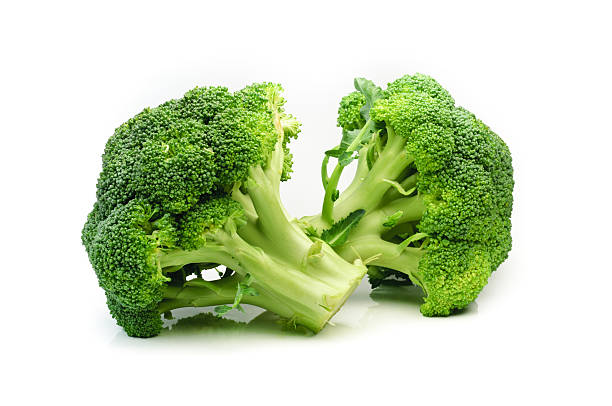Broccoli is a nutritious vegetable that is loved by many for its low calorie count and high vitamin content. This cruciferous vegetable is a staple in many healthy diets and is a great option for those looking to maintain a healthy weight.
So, just how many calories are in broccoli? A single serving of broccoli, which is approximately 100 grams, contains only 31 calories. This makes it an ideal choice for those looking to keep their calorie intake low, as well as for those following a calorie-controlled diet.
In addition to its low calorie count, broccoli is also a rich source of essential vitamins and minerals. It is high in vitamin C, which is essential for a strong immune system, and vitamin K, which is important for maintaining strong bones. It is also a good source of vitamin A, which is important for good vision, and vitamin B6, which helps regulate the nervous system.
Broccoli is also rich in dietary fiber, which is important for maintaining a healthy digestive system. Fiber helps regulate the movement of food through the digestive system and keeps you feeling full and satisfied, making it easier to control your calorie intake.
A 100-gram serving of broccoli contains just 34 calories, making it a low-calorie food choice. This serving size of broccoli contains 2.8 grams of protein, 6.6 grams of carbohydrates, and 2.4 grams of fiber. It is also a rich source of vitamins and minerals, including Vitamin C, Vitamin K, Folate, Potassium, and Magnesium.
Broccoli is also an excellent source of antioxidants, which are essential for protecting the body against cellular damage and reducing the risk of chronic diseases. The Vitamin C content in broccoli is particularly high, with a 100-gram serving providing 89% of the recommended daily value. This nutrient is essential for boosting the immune system, promoting healthy skin, and reducing the risk of heart disease and certain cancers.
In addition to its high nutrient content, broccoli is also a low-fat food. It contains just 0.4 grams of total fat per 100-gram serving, making it an excellent choice for people who are trying to lose weight or maintain a healthy weight. The fiber content in broccoli also helps to regulate digestion and keep you feeling full for longer, which can reduce the temptation to snack on unhealthy foods.
Broccoli is also a good source of iron, which is important for maintaining healthy blood cells, and potassium, which helps regulate blood pressure. It is also high in calcium, which is important for maintaining strong bones and teeth, and magnesium, which helps regulate muscle and nerve function.
In terms of fat content, broccoli is extremely low, with only 0.3 grams of fat per 100 grams of broccoli. This makes it a great option for those who are looking to reduce their fat intake, as well as for those following a low-fat diet.
Despite its low calorie and fat content, broccoli is extremely filling, making it a great option for those who are looking to lose weight. This is because it is high in fiber, which helps regulate the movement of food through the digestive system and keeps you feeling full and satisfied.
So, if you’re looking to add more nutritious vegetables to your diet, broccoli is a great option. With its low calorie and fat content, as well as its high vitamin and mineral content, it is a great choice for those looking to maintain a healthy weight and improve their overall health.
In conclusion, a single serving of broccoli contains only 31 calories, making it an excellent choice for those looking to keep their calorie intake low. It is also high in essential vitamins and minerals, dietary fiber, and low in fat, making it a great option for those looking to improve their overall health.

 Home
Home Health
Health Diet & Nutrition
Diet & Nutrition Living Well
Living Well More
More












